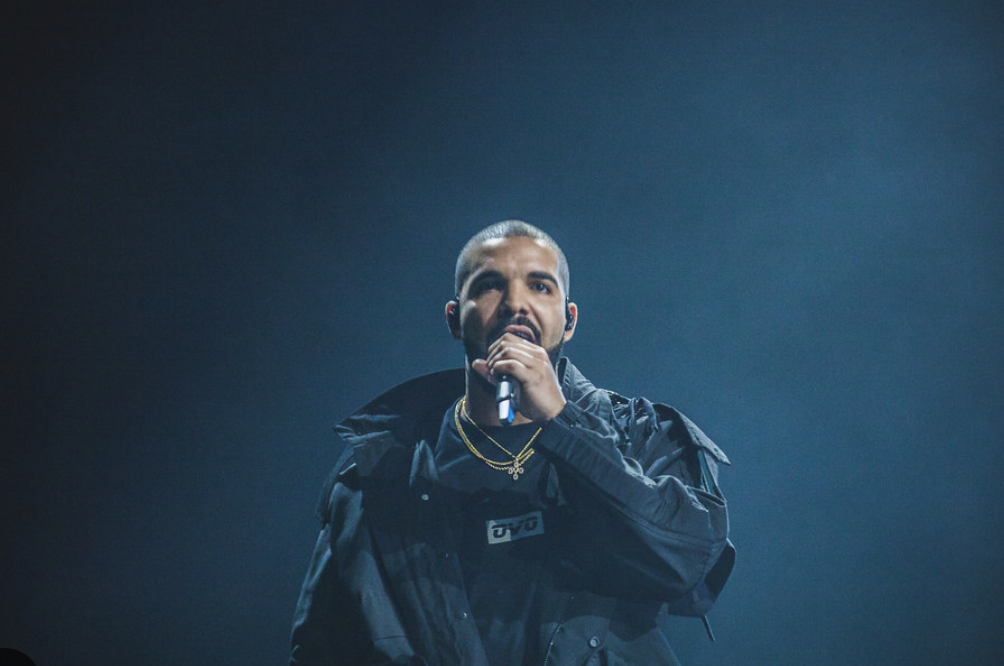Reasonable Doubt: Drake, Trump and the New Court of Public Opinion

One was fought with jargon, the other with singles. One was political, the other artistic. One was East Coast, taking place in Manhattan and Washington, the other decidedly West Coast, fought over the arid landscape of Southern California. Both involved torrid accusations, zingy one-liners and a battle between two men at the top of their field. If the spring of 2024 is remembered for anything, it will be either for the feud between Kendrick Lamar and Drake or the trial and conviction of former president Donald Trump.
Trump's trial commenced on April 15th, less than a month after Lamar's explosive verse on Future and Metro Boomin's "Like That." The first was a long anticipated eventuality, while the second appeared seemingly out of nowhere1. The former was somewhat underwhelming, the latter ceaselessly exciting.
There was no smoking gun in the prosecution of the former president. The information about his affair with pornstar Stormy Daniels had been public knowledge for years (since before the 2016 election) and the novelty of witness Michael Cohen as fixer-turned-informant was trite. Even the posturing of defense attorney Todd Blanche proved to be little entertainment2. If any collective cultural image was left behind in the Manhattan courtroom, it would have to be of Trump himself, leaning back in his seat, eyes closed, sleeping through his inevitable conviction.
Unlike scandals involving past presidential candidates, a conviction did little to Trump's poll numbers. The prevailing theory seems to be that the majority of Americans already know all there is to know about Trump, including his past indiscretions and legal liabilities. Those voters who support him do so completely, and those who don't are only radicalized more by his conviction. The trial and subsequent conviction did little to change anyone's mind. The only comparable comparison is the impeachment trial of Bill Clinton, whose approval ratings actually improved following the conviction. A polling bump, though baffling, at least proved to show that Americans cared. In the case of Trump, no one was listening.
The Kendrick-Drake conflict was the opposite, always interesting and memorable. They both started as respected artists, Drake commercially and Kendrick critically, and ended in wildly different positions, with Kendrick seen as a shrewd, dangerous GOAT not to be trifled with, while Drake was a phony, a poseur and perhaps even a pedophile. Drake put up a fight, but the combination of his own blunders and Kendrick's relentless attacks rendered him obsolete. Similarly to Trump, Drake's diehard fans stayed true, but the majority of casual rap listeners soured on him, removed him from their playlists and posted "BBL Drizzy" on their Instagram stories. He was decimated4.
It is evident, then, that Trump suffered very little from his trial, while Drake experienced vast damage to his career and reputation from the beef. Strangely, though, Trump was convicted guilty, and the majority of Americans believe he committed the crime, while, at best, the validity of Lamar's accusations seems dubious at best. Proof is scant and Drake has denied the allegations; the best evidence seems to be some unfortunate lyrics from his album Scorpion3. Meanwhile, Drake has counter-claimed that Kendrick assaulted his partner, an accusation that no one seems to care about, despite more evidence in its favor. How is it then that the court of public opinion has decided that Trump is guilty, but doesn't care about his guilt, while Drake's problems are more compelling and less credible?
Americans tend to make decisions about celebrities based on two qualifications: likability and quality. Trump is brash and xenophobic - objectively unlikable - and Drake often comes off as contrived and arrogant, which also hurts him on the likability scale. Both seemed primed for a public downfall; many Americans already didn't like them. The second quality, though, was what mattered. As with many past cancellations, more valuable celebrities are spared while weaker ones failed. The hip hop fans who turned on Drake didn't believe the quality of his music justified his controversy. Meanwhile, Trump's MAGA base, and many moderates, believe he can control the economy and promote American business, something Drake doesn't have.
The court of public opinion is hypocritical in this way: it does not matter what you've done, but what you can do in the future. What matters then, is not someone's actions, but their potential.
-
- Drake and J. Cole's perceived "sneak diss" of Lamar on their track "First Person Shooter" could be considered the actual genesis of the beef, though validity of this claim is questionable. They name-checked Kendrick to include him in the "Big Three" of greatest rappers, which on the surface is a compliment.
- Remember his heated argument with Judge Juan Merchan? Remember him calling Michael Cohen the "G.L.O.A.T" (Greatest Liar of All Time)? Remember him politely asking the jury not to convict Trump, practically with a pretty please? You don't? Exactly.
- "High school picks/you was even bad then," off of "Nice For What," for one.
- As for collective cultural moments, Kendrick delivered them consistently and without fail, from the "f*ck your Big Three" on "Like That" to the notorious bar on "Not Like Us" about Drake's alleged history with underage girls.
